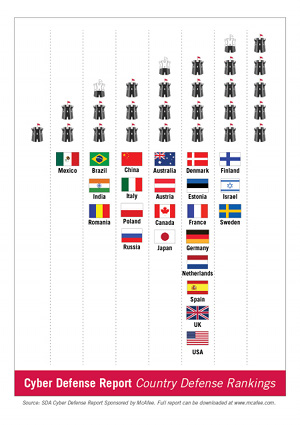Expert to finger air steward commentards who ‘harassed’ pilot
A trade union has been ordered to let an independent expert examine its computer database to try to identify anonymous users of a forum it operated who allegedly defamed and harassed an airline pilot.
The High Court said its order was both necessary and proportionate and rejected claims made by the Unite union that the scope of the order was intrusive. Unite had claimed that the expert would be invading the privacy of its members by trawling through their “sensitive personal data” to look for the identifying information.
Manish Patel, a British Airways captain, had requested that Unite disclose the identities, home addresses and IP addresses of 42 anonymous users of the British Airlines Stewards and Stewardesses Association (BASSA) forum.
Unite had previously been ordered to conduct a “reasonable search” for the information on its systems, but had said the details had been deleted after the forum was shut down. However, the High Court said that staff at the trade union lacked expertise in IT and that an independent expert should be allowed to conduct their own search for the information.
The Court said the independent expert will have to “give suitable undertakings” that they will not reveal any information uncovered during their search that is not relevant to the information being sought before conducting their search.
“An order for Norwich Pharmacal disclosure [a legal term which means the respondent must disclose certain documents or information to the applicant] has already been made, which obliged Unite to carry out a search for the information which Mr Patel needs,” the High Court said in its ruling. “There is reason to suppose that the search has not been thoroughly carried out, or has not been carried out with the degree of expertise which is necessary to ensure that it is effectively done.”
“It is relevant to take into account that the terms of conditions of the BASSA website warn members that BASSA reserves the right to disclose their true identities and other information, if requested by a third party, albeit subject to their rights of privacy and of data protection,” it said. “Moreover, without an order of the kind sought, it will certainly not be possible to identify those responsible for the arguable wrongs of which Mr Patel complains. I accept that even with such an order, their identification may not be achieved, but it certainly cannot be done without one”.
“It seems to me that the intrusiveness of the order proposed, particularly as regards innocent members who have not posted any of the material complained of, can be significantly reduced by ordering that the necessary work should be carried out by an independent expert appointed jointly by the parties, and that the expert should give suitable undertakings … to the effect that he should not disclose to Mr Patel or to any other person any information obtained in the course of his copying and examination of the BASSA database except information which identifies those responsible for the posts complained of or which explains why (if that be the case) they cannot be identified,” it said.
“On that basis, the order will in my judgment satisfy the requirement of proportionality, and the need to respect so far as possible the privacy and data protection rights of BASSA members,” the Court ruled.
Patel claims he was defamed and harassed by anonymous users on the BASSA forum. The users wrote that he was “unsafe to fly with,” lied, was “unfit to be a captain,” acted illegally and erratically, had been responsible for “the dismissal of innocent cabin crew” and been involved in police corruption, according to the ruling. Patel needs to be able to identify the users responsible for the comments if he wants to bring legal action against them, the ruling said.
Unite had previously been ordered to disclose the identities of the individuals behind the usernames but said it was impossible to find out who precisely had posted which messages. That was because BASSA forum members “could and apparently did” regularly swap or change usernames in order to prevent BA identifying them and because some of the data contained about usage of the site had been deleted after the forum was closed down last year, they said.
However, Patel argued that the information was recoverable and the High Court said that it was necessary and proportionate for an independent expert to look for it. In the UK courts can issue what is called a Norwich Pharmacal Order to force the release of information.
Unite had claimed that the information contained on its database was “sensitive personal data” because Patel claimed the users had committed an offence under the Protection from Harassment Act.
Under the Data Protection Act extra protection must be given to sensitive personal data, which includes whether a person has committed or allegedly committed an offence. In his ruling the judge said that the information that independent expert may encounter could also be considered sensitive personal data because it would reveal their identity as a trade union member. Despite this, he ruled the search was legitimate.
Last summer the BASSA forum was closed following complaints Patel filed about the claims made about him. Unite had posted a “unilateral statement” on the site at the time of closure that said “many of the allegations” levelled at Patel were “unfounded”.
 Copyright © 2012, OUT-LAW.com
Copyright © 2012, OUT-LAW.com
OUT-LAW.COM is part of international law firm Pinsent Masons.
Article source: http://go.theregister.com/feed/www.theregister.co.uk/2012/02/01/high_court_says_scrutinising_forum_database_isok/
